The Ministry of Defence (MOD) has reported a steady rise in the number of civilians employed by the department over the past five years, according to new figures disclosed by Lord Coaker, Minister of State for Defence.
In response to a question posed by Lord Lee of Trafford, it was revealed that the civilian headcount as of 1 April 2024 stood at 63,702. This represents an increase of over 3,400 staff members since 2020, when the headcount was 60,256. The data shows a consistent upward trend in civilian personnel, with a notable rise in 2024 compared to previous years.
The MOD provided the following headcount figures for civilian personnel as of 1 April each year:
- 2020: 60,256
- 2021: 62,039
- 2022: 61,895
- 2023: 62,652
- 2024: 63,702
This data excludes Non-Departmental Public Bodies, short-term employees, or contractors.
What roles do MOD civilians perform?
The Ministry of Defence employs civilians in a wide variety of roles across the UK and abroad, spanning both conventional government jobs and highly specialised positions. These roles include policy, finance, human resources, IT, and project management, along with commercial and administrative positions typical of a government department.
In addition to these, the MOD also employs professionals such as doctors, dentists, teachers, police officers, and fire service personnel. There are also roles for engineers, quantity surveyors, and various other technical specialists. Apprenticeships are available in many of these areas too.
From office-based roles to highly technical positions, the MOD’s civilian workforce plays a crucial role in supporting the UK’s defence infrastructure, ensuring both operational efficiency and strategic planning are maintained at home and abroad.


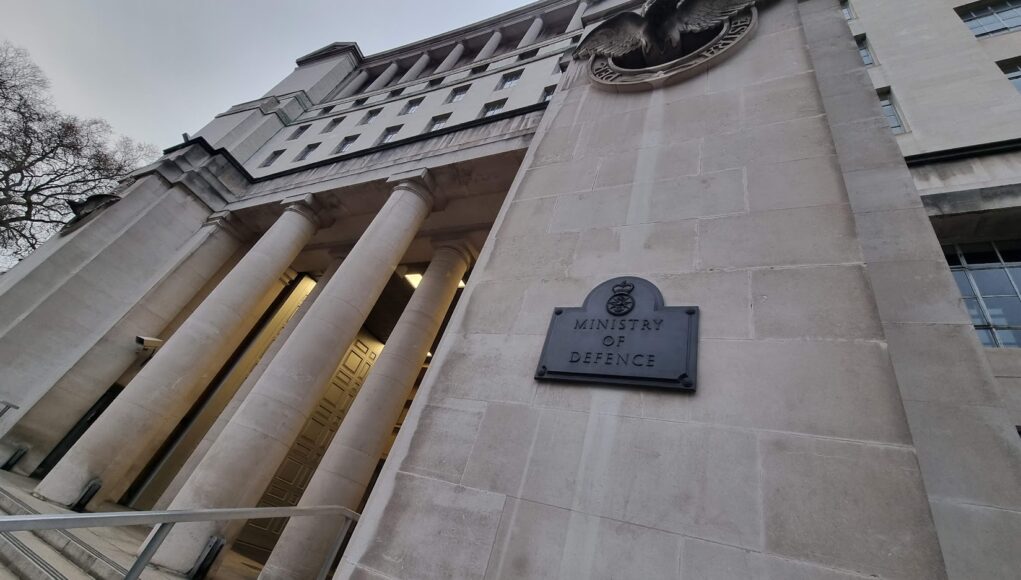
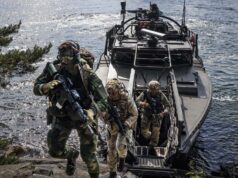
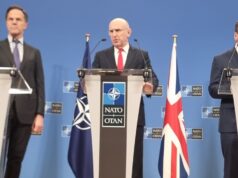
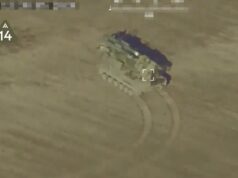
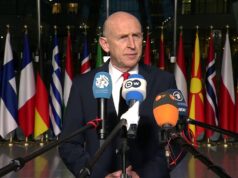
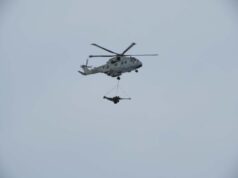

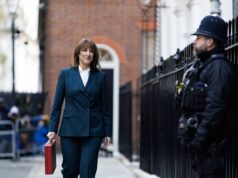
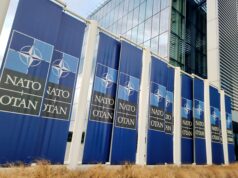
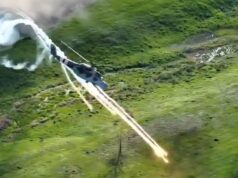


Just what’s needed as the armed forces shrink to the lowest levels ever.
More snivel servants.
Will procurement get better – No
Will forces housing improve – No
Bet they all work from home as well
You know every civilian sitting at a desk is one less service person who has to, and can instead be on the front line.
So the forces have put 3,400 more uniformed personnel on the front line since 2020? That’s very nearly a brigade!
I think not.
Well if you didn’t have those civil servicents who would do their job overwise? And the person who I took over from was a aviator who is now free to complete their training.
Or would be free to complete their training if the MOD civil servants hadn’t destroyed it.
And how did Civil servants destroy that?
The MOD outsourced the training in the same way they outsourced military recruitment, another failure.
Okay so. I won’t go in to detail about what I do however. I do work in one of the services HQ, and even though I’m a relatively junior CS due to my post I work incredibly closely with very senior officers and am privy and involved in things that ate far above my grade. With Recruitment and training both being two of the things I am most closely related to. And let me tell you this civilians have practically no real imput on the operations and decision making of the military and that in the case of training and Recruitment, at the very least in my services which is one of the worst hit, I can catagorgly say that it is military peroneal who are responsible for those.
Harry, I can categorically say that the decision to outsource army recruiting to Capita was a political decision not a military one.
I would agree. But Politicians and Civil Servants are two different things.
Yes, I very much know that.
Harry, my point was about the delta since 2020, not the rationale for having civil servants in the MoD.
There really cannot be 3,400 new CS posts/jobs that were formally done by uniformed personnel.
I suspect most if not all of those 3,400 are new posts that were not filled by servicemen before.
So nearly one civil servant for every soldier?
Having worked with civil servants in Whitehall and in Portsdown hill I can pretty safely say the majority I worked with were pretty useless, paper shufflers that berated their management and sniped at service personnel.
They also treated the cleaning staff really badly.
Their shite didn’t stink.
No, there are around 190,000 service personnel so it’s more like one to three.
You didn’t read my post properly. It stated nearly one civil servant per soldier.
Do you work for MOD documentation proofing?
190,000???
If only.
Around 130,000.
Regular establishment of the services is about 132,000 – 72,000 Army, 30,000 RAF, 30,000 RN/RM. So one civil servant per two serving personnel.
I know that the civil servants do a lot of good and necessary work in defence, but the proportion of civilians to military personnel seems rather excessive.
As a civil service I can safely say you’re chatting BS. Everything you say to describe civilians I have seen miltary personel do in equal capacity. However, I’ve also seen plenty of civilians, includ who work hours and hours for free sometimes to breaking point and who take absolute pride in their work and do all that they can to support the miltary.
Then I would say they are in the minority.
No civil servant I know works out of hours. (Look at the Kabul evacuation where no senior/decision maker in the Civil service could be contacted even though the news was saturated with live streams)
Also let’s not forget the MOD procurement success of Ajax
Yet Israel manages to carry out all it’s procurement with roughly 16000 staff
Someone is not getting value for money
Pitting was before I joined but in my last role I was involved in helping, at least a little, with the evacuation following the 7th of October attacks. When I drove an hour back into work at 2030, without even having had a diner after driving an hour home to carry out my out of work commitments, as most of my military colleagues who lived on base refused to do so. So that I could spend the next 7 hours conducting emergency kit issues to CS who had volunteered to go out to Israel at short notice to help conduct the evacuation. With many of them also having done Pitting and Sudan. So yes some senior CS may have been suning themselves in the Caribbean but there where plenty more CS on the ground in Kabul working alongside their military colleagues.
Also as for Akax and every other military procurement 1 they are naturally complicated, 2 it was the requirements set by the Army that made Ajax such a issue, and 3 Ajax like all such programs are overseen by a military officer who is usually only in post for 2 years.
Kudos to you sir re Oct 7.
Excellent
Thank you.
You are blaming CS for procurement failings of Ajax, yet attach no blame to Industry, military officers, politicians in MoD or Treasury.
Comparison to Israel is bizarre. They are a small country with a very different (and less complex) Defence posture to the UK. I can assure you that not all those 63,703 MoD CS are doing procurement – it will be a fraction of that number. You need to compare like with like.
My partner works as an MoD civvy, often gets talked to in rude and abusive manner by services personnel. Lots of service people in her unit show up late and push off early, treating it as just some role to mark time until their next deployment.
I doubt all services personnel are like that, similarly your experience probably isn’t reflective either.
I was a staff officer in DLO in 2002-3 (and had 5 CS in my team). I saw none of that rude, abusive behaviour. I later worked as a civvy on contract for DE&S in 2009-2011 and again did not witness such behaviour.
I cannot comment on service people showing up late or pushing off early as my connection with serving military has ceased, but it cannot because they disrespect their own job (they get annual reports which determine promotion and would be marked down if they show that disrespect for job). As for ‘until their next deployment’? Much of the army does not do major deployments that much these days. Perhaps you mean ‘until their next posting at Regimental Duty’.
They generally work at their base/office locations, working from home is by exception.
What do you have against MoD civvies? They’re all performing roles previously forces personnel would do but at better cost. More functions are centralised rather than duplicated across the services.
Goodness gracious, that’s one civvy for every two serving
personnel. The civvies nearly match the strength of the army now! We are short of trained military personnel in just about every branch of the services but it seems that, as the MOD ousts serving personnel, it fills the gap with… yet more civvies.
I know that the civilian numbers include the MOD police, the RFA, etc. Maybe the Ascent people in UKMFTS, or are they contractors, rather than employees?
Either way, we seem to have rather a lot of besuited accountants, IT people, PR minders, consultants and the like on fancy wages and fees.
I think we should form a BIG new regment, the 1st MOD Rifles [R], and have all these lads and lassies parade each morning and do extremrly challenging weekend exercises. Might give them a bit of military understanding, which is not often the case among MOD civilian personnel.
So why would civil servants do that?
You don’t get sarcasm do you?
Quangos are a bigger problem, cost of funding regulators for privatised services must be way more than any savings the neo-liberals thought they would make. ABRO was far more productive than DSG Babcock, according to accounts it again did not generate meaningful profit and the buildings left to decay with minimal repairs.
It is the expected result in the present British political and social discriminatory culture = The systemic privilege of the bureaucrat.
OK, why are all my comments awaiting approval?
So much for freedom of speech.
You approve this one but what about the rest?
So much for A.I making things more efficient
So since clearly everyone hear is so ignorant. As a MOD civil servant. Let me tell you we are not just a bunch of tea drinking, stamp punching over paid Liberians. I have known many of my civilian colleagues to work themselves to the point of tears and sickness. Often so that they can back fill other tasks that are outside their role, left by the critical shortage of both military and civilian personnel.
Yes there are lazy bone idle, awkward civilians but for everyone of those there is also one soldier/sailor/aviator who is the same.
Every job done by a civilian is a job that needs doing so if it wasn’t for them then someone in Uniform would have to do it. Often for twice as much of a cost. In my last role my military colleague was on 31,000 plus subsdised accommodation, food and other benefits where as I performed the same role and worked the same hours for only 19,000.
Given that most on this site have never been in the military or performed any other form of public service, I find it frustrating how quickly the ymock and accuse those civilians who work so hard and passionately for the benefit of this miltary and country.
What, you can’t be serious. There are a lot of jobs that do not need to exist.
One of the dark arts of bureaucracy is to invent lots of marginal jobs.
Really you believe that? Identify one.
Especially given that we are already hundreds short of civilian strength as is.
Diversity coordinator anyone?
I work with a diversity team. 1 half are miltary, 2 it is a requirement set by the government, and 3 they do an important job.
Which ones Alex?
Name the directorates, agencies and organisations of the MoD that can be safely disbanded, with no impact to defence, and the civil servant staff, who often work alongside military personnel,
laid off.
I’ll wait.
I did 24 years so I think I can say from most ex matelots.
MOD civil servants are on the whole held in contempt.
Whilst stationed in Hong Kong all the MOD civil servants housed in Stanley did not pay rent or utilities
Navy, army, air force paid everything.
Wonderful for morale.
Yeah cause they can’t be ordered to go. So if you are going to encourage someone to work in a forign country you have to intise them. Even then they were probably cheaper then a soldier. As I mentioned previously in my last job I earned dramatically less then my miltary peer.
Well said Harry.
I have got the impression, on many occasions over the years, how little some posters know about the MoD, how so few know of or consider the many, many, many areas of the MoD where “civilian pen pushers” are much more than that.
People seem to think the only civilians in MoD are at Main Building and Abbey Wood.
Without the back end, there is no effective front end.
No criticism from me.
Thank you. Unfortunately the CS has a bad rep generally but it seems particularly aggressive in the speer of defence.
Not seen you here for some years.
So you ended up working in MoD.
Well done.
Your dyslexia seems to have improved somewhat?
Thank you, I’ve been in for almost 2 and a half years now. For someone like yourself I can’t recommend it enough.
I’ve been keeping up with the articles but unfortunately I rarely have the time to comment.
And thank you, one of perks of sending hundreds of emails a day. Although it’s still very much a regular joke in the office. 😆
Well I remember posters here, and you’re an old timer.
Well done you.
It is too late for me I’m afraid, what would MoD want from.a 52 year old with my interests.
I did try to join the RAF, but that’s ancient history.
Perhaps I should have considered MoD.
Thank you again, but you would be amazed at the jobs that are available. Many of my civilian colleagues in my last role where coming up to or post retirement and was simply looking for something different to see them into retirement or to top up their pensions.
It would be very interesting to know why the MOD needs more staff, considering the armed forces is smaller than ever and technology, computers, etc should make things more efficient.
Yes.
I see the need for the supporting back end, but the rise in staff numbers is curious.
Knowing which area of MoD would be interesting.
Yes. That is what I am interested in. MoD, like all Government Depts, need CS and they mosty do a good or great job.
It is the reason for the increase that mystifies.
Why do we have this obsession with CS headcount?. At the end of the day everything we do costs money which should be our prime control mechanism. I recall when Michael Heseltine was SofS in the 1980s that he introduced his New Management Strategy where costs were linked to outputs. He didn’t care who delivered, whether it was Civil Servants, Military or contractors, as long delivery was made on time and within budget. I also remember the numerous recruitment freezes and the damage they caused to programmes. If Project Managers couldn’t fill vacant posts, they would buy in expensive technical assistance from industry at double the price! False economies all round.
I suspect it’s due to many ex service people here, quite rightly resentful and upset at how the forces have been cut repeatedly, while the “pen pushers” in the rear remain.
It’s understandable, but I don’t think quite correct, as I think MoD staff numbers were culled also post Cold War.
What’s curious is the 3k increase since 2020.
I have never been in the forces but follow with interest our amazing services, i read what people say and some have valid points and opinions but also some dont, we dont spend enough on our defense and hope that when it kicks off which i believe it will we can show our metal ,i am very proud of our forces and know they will use the training they got to fight our foes as best they can, every war we have fought the Gov has let us down cheated us out of funds and used best pals in right places to line their pockets.the day is coming so stop bikkering and prepare